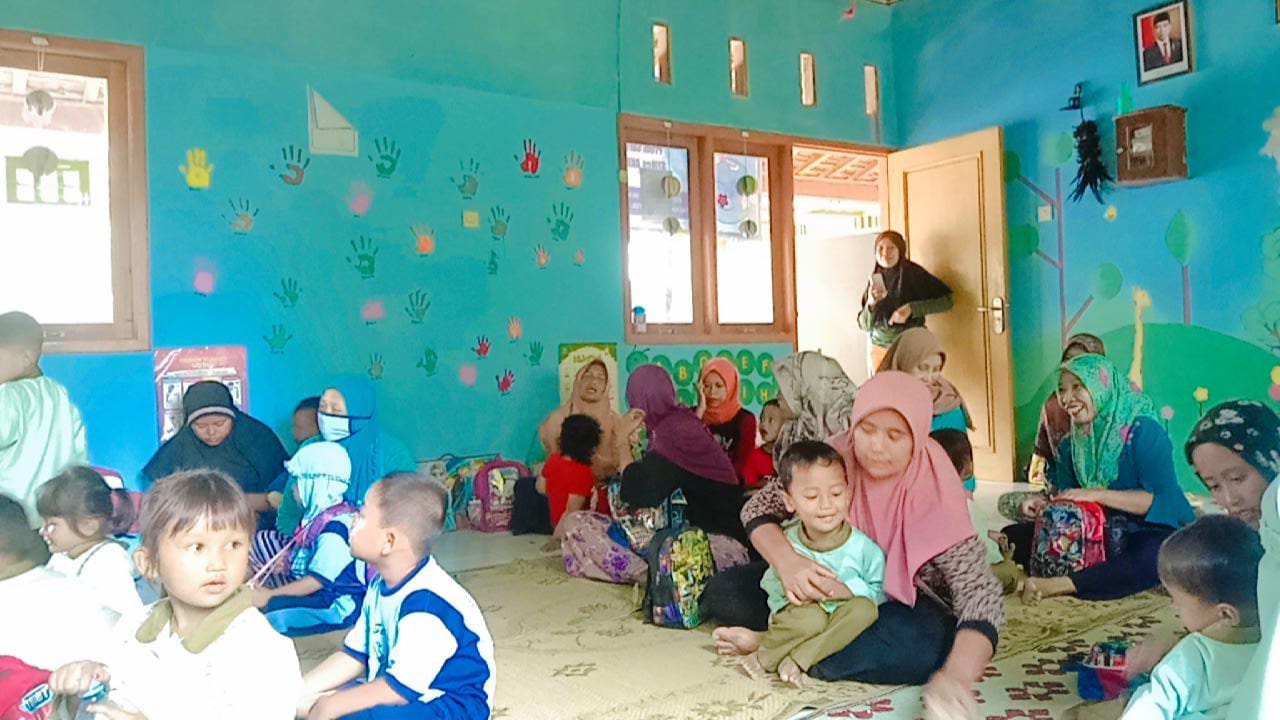Abstract
Long-acting reversible conceptions (LARCs) can be a solution to reduce poverty, unemployment and maternal mortality. The interest of couples of childbearing age in using LARC is still low. The low use of LARCs has resulted in the unmet need for family planning which caused by multiple factors. The purpose of this study was to determine the relationship between education level and knowledge of couples of childbearing age (CCA) about long-term contraceptive methods (LARCs) in Gupakwarak Hamlet, Sendangsari. This research is an analytic observational study using a cross-sectional design. The sampling technique used is simple random sampling with 134 respondents. The results showed that there is no significant relationship between education level and knowledge of fertile couples about LARC (p-value 0.109) in Gupakwarak Hamlet, Sendangsari. Knowledge is not only obtained through formal education but also from informal education such as counseling, actively seeking information on social media, antenatal classes, working environment, and/or counseling about LARC in Posyandu. It is recommended that midwives continue to provide counseling regarding LARC to pregnant women to provide consolidation regarding understanding of LARC, prevent misinformation, and help determine the right method for them.
References
Ayu Setyani, R. (2019). Serba-Serbi Kesehatan Reproduksi Wanita dan Keluarga Berencana. Tangerang: PT. Sahabat Alter Indonesia.
Bahamondes, L., Fernandes, A., Monteiro, I., & Bahamondes, M. V. (2020). Long-acting reversible contraceptive (LARCs) methods. Best Practice & Research Clinical Obstetrics & Gynaecology, 66, 28–40. https://doi.org/10.1016/j.bpobgyn.2019.12.002
BKKBN. (2015). Pelayanan KB Program Kependudukan Keluarga Berencana dan Pembangunan Keluarga. Jakarta: Badan Kependudukan dan Keluarga Berencana Nasional.
BPS. (2020a). Catalog : 1101001. Statistik Indonesia 2020, 1101001, 790.
BPS. (2020b). Jumlah Pasangan Usia Subur dan Peserta KB Aktif.
Hall, K. S., Ela, E., Zochowski, M. K., Caldwell, A., Moniz, M., McAndrew, L., Steel, M., Challa, S., Dalton, V. K., & Ernst, S. (2016). “I don’t know enough to feel comfortable using them:†Women’s knowledge of and perceived barriers to long-acting reversible contraceptives on a college campus. Contraception, 93(6), 556–564. https://doi.org/10.1016/j.contraception.2016.02.007
Isley, M. M., & Katz, V. L. (2017). Postpartum Care and Long-Term Health Considerations. In Obstetrics: Normal and Problem Pregnancies (hal. 499-516.e2). Elsevier. https://doi.org/10.1016/B978-0-323-32108-2.00023-8
Kemenkes RI. (2021). Profil Kesehatan Indo-nesia. In Pusdatin.Kemenkes.Go.Id.
Kungu, W., Khasakhala, A., & Agwanda, A. (2020). Trends and factors associated with long-acting reversible contraception in Kenya. F1000Research, 9(November). https://doi.org/10.12688/f1000research.23857.1
Mahardany, B. O., & Supriadi, R. F. (2023). Relationship Between Mother’s Characteristics and Husband’s Support with the Use of Post-Partum Family Planning in Mamuju District. Jurnal Kesehatan Manarang, 9(1), 66. https://doi.org/10.33490/jkm.v9i1.896
Mahardany, B. O., Supriadi, R. F., & Wahida, W. (2023). Pengaruh Konseling terhadap Keputusan Penggunaan KB Pasca Persalinan di Kabupaten Mamuju n Mamuju. Jurnal Kebidanan, 13(1), 11–20. https://doi.org/10.35874/jib.v13i1.1116
Nugroho, Taufan., D. (2014). Buku Ajar Asuhan Kebidanan Nifas 3. Yogyakarta: Nuha Medika.
Purwandari, A., & Tombokan, S. (2017). Analisis Faktor-Faktor Yang Berhubungan Dengan Pengetahuan Akseptor KB Dalam Pemilihan Alat Kontrasepsi Implant Di Puskesmas Tuminting Kota Manado. PROSIDING Seminar Nasional Tahun 2017 ISBN : 2549-0931, Vol 1 No 2, 415–423. https://ejurnal.poltekkes-manado.ac.id/index.php/ps2017/article/view/505
Rismawati, R., Asriwati, A., Tarigan Sibero, J., & J. Hadi, A. (2020). Faktor Yang Mempengaruhi Wanita PUS Terhadap Pemilihan Metode Kontrasepsi Jangka Panjang (MKJP) Di Puskesmas Mayor Umar Damanik Kecamatan Tanjungbalai Selatan Kota Tanjungbalai. Media Publikasi Promosi Kesehatan Indonesia (MPPKI), 3(2), 100–105. https://doi.org/10.56338/mppki.v3i2.1078
Sugeng, J. & A. R. M. (2019). Keluarga Berencana (KB) dalam Perspektif Bidan. Yogyakarta: Pustaka Baru.
Sulistyawati, A. (2014). Pelayanan Keluarga Berencana (Cetakani k). Jakarta: Salemba Medika.
Temple-Smith, M., & Sanci, L. (2017). LARCs as first-line contraception: what can general practitioners advise young women? Australian Family Physician, 46(10), 710–715. https://search.informit.org/doi/abs/10.3316/informit.139236952247991
Tohir, T. (2019). Hubungan Tingkat Pendidikan dan Pengetahuan Ibu Terhadap Pemakaian Alat Kontrasepsi di Wilayah Keluarga Binaan Kesehatan Fakultas Kedokteran Universitas Muhammadiyah Sumatera Utara Angkatan 2016 di Kecamatan Medan Johor Sumatera Utara Tahun 2019. In Jurnal kedokteran. http://repository.umsu.ac.id/handle/123456789/14632
Yuliani, D. A. (2019). Hubungan Paritas Dengan Pengetahuan Pasangan Usia Subur (Pus) Dalam Pemilihan Kontrasepsi Metode Operasi Wanita (Mow). Infokes, 9(1), 1–9. https://ojs.udb.ac.id/index.php/infokes/article/view/704


